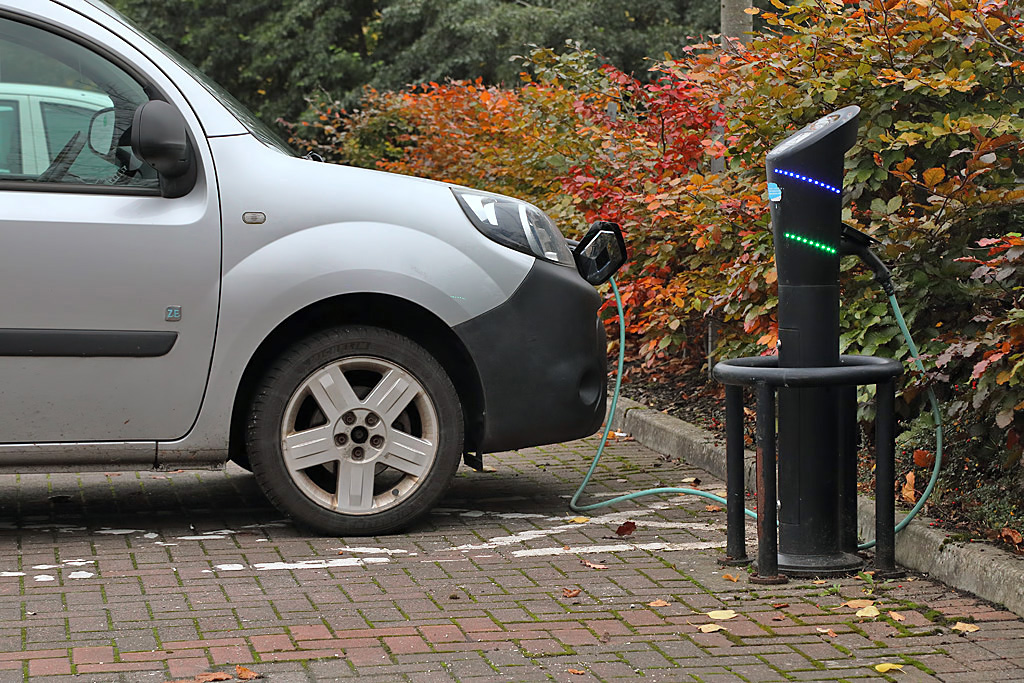Owning an electric automobile can save owners thousands of dollars every year, with an average savings of $6,000 throughout the vehicle’s lifespan, although the benefits are depending on subsidies, state levies, and gas and energy prices.
Many Americans are considering purchasing an electric vehicle as petrol costs rise in the United States. For some, the initial purchase price is a deal-breaker, but when the statistics are crunched, it appears that having an electric car is actually cheaper on a monthly basis in many states than owning a gas-powered vehicle. According to research done by Energy Innovation Policy & Technology LLC, new electric cars (EVs) are cheaper to own on a monthly basis in most states than gasoline-powered vehicles from the moment they leave the lot.
Models and MSRPs for Gas and Electric Vehicles in 2022 Source: Energy Innovation Policy & Technology LLC

According to the survey, acquiring an electric vehicle might just save buyers an average of $6,000 over the vehicle’s lifetime. The savings are dependent on Congress passing autonomous car user incentives, which is a huge caveat. This includes the $7,500 federal tax credit for owning an electric vehicle. While the tax credit is a fantastic method to encourage sales (and theoretically get gas-powered vehicles off the road), there is a catch: the benefit can only be extended to 200,000 electric vehicle sales per year. It is not unimportant that both Ford and Nissan are estimated to increase the federal tax credit limit this year.
Models and MSRPs for Gas and Electric Vehicles in 2022 Source: Energy Innovation Policy & Technology LLC
According to the study’s findings, raising the tax credit limit to $10,000 would lower the cost of electric vehicles in practically every state-vehicle comparison simulated. Gas prices are currently considerably higher than they were when the modeling was done, but as the operating cost gap narrows, tax credits will become significantly more relevant. The study compared the monthly costs of 6 different electric automobiles to those of their internal combustion engine counterparts.
The study compared the monthly costs of 6 different electric automobiles to those of their internal combustion engine counterparts.

Models and MSRPs for Gas and Electric Vehicles in 2022 Source: Energy Innovation Policy & Technology LLC
Financing, state taxes and fees, state and federal rebates and tax credits, gasoline, maintenance, and insurance are all included in these prices.
EVs and gas-powered vehicles have similar financing costs, except when manufacturers provide interest rate discounts for EV buyers. The good news is that after a loan is paid off, electric vehicles become significantly less expensive to own, with certain models saving up to $2,000 per year and some vehicle-state combos saving up to $3,000 per year.
When compared to gasoline cars ($0.101/mile), EV maintenance expenses were determined to be roughly 40% cheaper ($0.061/mile).
Models and MSRPs for Gas and Electric Vehicles in 2022 Source: Energy Innovation Policy & Technology LLC
Annual maintenance expenses were calculated using DOE per-mile estimates and average annual mileage of 13,469 for the loan duration based on data from US Environmental Protection Agency modeling.
Annual mileage, fuel efficiency from FuelEconomy.gov, current average state gasoline prices from AAA as of May 4th, 2022 (which have climbed since then), and 2021 average household energy rates were used to calculate vehicle fuelling expenses. Electric car taxes vary by state, with several imposing a “tax” to compensate for lost fuel tax income. (The research did not consider the expenses of charging using solar energy at home.)

Models and MSRPs for Gas and Electric Vehicles in 2022 Source: Energy Innovation Policy & Technology LLC
The study demonstrates that the Fully Electric SEL and Ford F-150 EV variants are typically cheaper to finance and own in every state than the corresponding gasoline vehicle. For certain places where it is easier to own the fuel version, the Volvo XC40 and Nissan models cost only a few bucks or less. In Idaho, Indiana, Illinois, Minnesotans, Mississippi, Massachusetts, Ohio, Carolina, Virginia, West Virginia, Vermont, and Laramie, for example, the actual charge of the Nissan Leaf is less than $15, which in some states it is less than $1.
While the initial sticker price of an electric car may dissuade some people from switching from gas to electric, statistics reveal that many EV models are cheaper than gasoline vehicles in many areas. However, the authors of the paper point out that greater EV adoption is predicated on a $7,500 federal tax credit. “GM and Tesla have already surpassed the program’s sales cap, and Nissan and Ford will most certainly do so this year.” Without this incentive, practically every vehicle-state comparison we looked at would cost consumers more per month during loan repayment if they bought an EV.”
The whole report may be seen here.

















